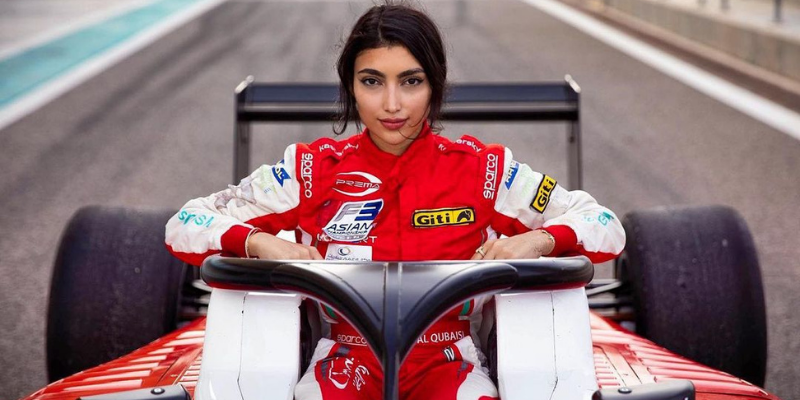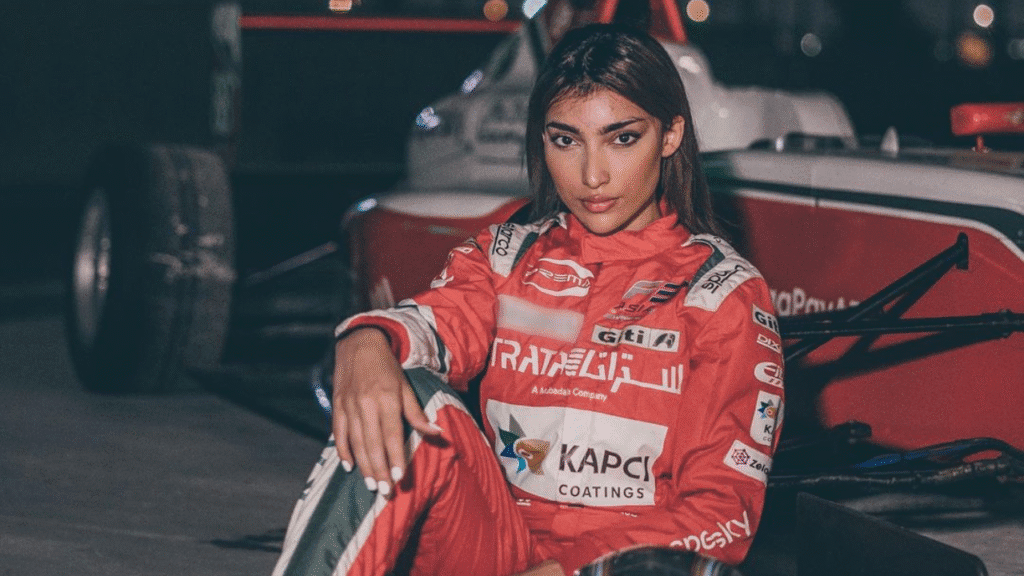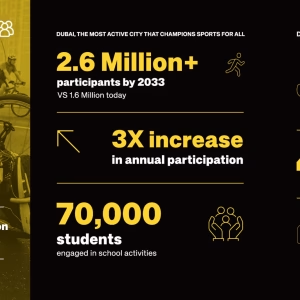It’s a crisp weekend morning at Yas Marina Circuit, and the air is electric. Engines roar, tires screech, and the track pulses with adrenaline. Among the sea of helmets and jumpsuits, one thing stands out — the growing number of women gripping the wheel, ready to challenge speed and stereotypes alike.
In the UAE, where motorsports have long been seen as a male-dominated arena, a quiet revolution is underway. Female race car drivers are no longer just rare exceptions. They’re rising, pushing past gendered assumptions and carving out space in the high-octane world of racing.
Women like Amna Al Qubaisi are leading the way. As the first Emirati female F3 driver, Amna’s journey into motorsports has sparked inspiration and conversation across the region. Her story is proof that the track is no longer reserved for men — it’s for anyone brave enough to take the wheel.

The Road Less Traveled
Becoming a race car driver in the UAE, particularly as a woman, is a journey defined not only by skill, but by persistence. From battling cultural preconceptions to earning credibility in a sport dominated by men, female racers must often do more to prove themselves.
It begins early. Many girls interested in motorsports start out in karting, a common gateway to professional racing. But while boys may be pushed toward the track, girls often have to ask — sometimes fight — for the same opportunity.

Even once they begin training, access remains a challenge. Racing is expensive. It demands gear, coaching, travel, and track time. Without sponsorships or family support, many talented women simply can’t afford to continue. That’s why stories like Amna’s stand out — not just because she raced, but because she endured.
Her early years were filled with international competitions, late-night study sessions, and endless hours of training. Her success wasn’t just about passion. It was about discipline, sacrifice, and the courage to keep going when the odds were stacked against her.
Behind the Wheel: More Than Just Speed
Being a race car driver isn’t simply about stepping on the gas. It’s a mental game — one that requires lightning-fast reflexes, split-second decisions, and intense physical conditioning. In many cases, women in the UAE entering the sport must not only master these skills, but do so under heightened scrutiny.
“People assume that because I’m a girl, I’m slower or not as aggressive on the track,” says a 20-year-old karting champion based in Dubai. “But racing isn’t about gender — it’s about instinct and control. I’ve had to prove myself every single race.”
Indeed, many female drivers in the Emirates report feeling the pressure to perform at a higher level than their male counterparts. They are expected to be perfect — not only to win, but to justify their presence in a space that wasn’t designed for them.

And yet, that same pressure often fuels their drive. Whether it’s strength training to compete in endurance races or studying telemetry data to fine-tune their performance, female racers are working harder than ever to claim their space — not as women drivers, but as drivers, period.
Changing Lanes: From Tradition to Transformation
Cultural perceptions in the UAE are shifting. While motorsports were once seen as an unconventional choice for women, especially Emiratis, today they are increasingly accepted — even celebrated.
Part of this shift comes from broader changes in the region. Over the past decade, the UAE has actively promoted gender equality across sectors, encouraging women to enter STEM, aviation, the military — and now, sports.
This momentum is reflected in the way communities are beginning to respond to young girls with big racing dreams. Families that once hesitated to send their daughters to karting clubs are now enrolling them early, eager to support ambitions that might have been stifled a generation ago.
This support is crucial. Without it, many female racers wouldn’t be where they are today. Parents, siblings, friends, and mentors make up an essential “pit crew” — encouraging, funding, and cheering from the sidelines.
One Emirati father recalls taking his daughter to her first track day at age nine. “She was nervous, and so was I,” he admits. “But when she got behind the wheel, I saw something in her eyes. That was it. I knew we had to support her, no matter what.”
The Rise of a Racing Sisterhood
While female racers often start out feeling like the only woman in the paddock, that isolation is beginning to fade. Across the Emirates, a new kind of sisterhood is forming — one built on shared passion, mutual respect, and fierce ambition.
Through social media, karting academies, and racing events, women are connecting with one another, offering support, advice, and friendship. This growing network has become a lifeline for many — a place where experiences are shared and victories are celebrated.
Mentorship is another powerful force. Established racers are mentoring younger girls, helping them navigate the early stages of their careers. These relationships are critical not just for technical skills, but for building confidence and a sense of belonging.
The visibility of female racers also plays a huge role. Seeing women on the podium or in leadership roles at racing events changes perceptions — not just among fans, but among young girls who now see motorsports as a real, attainable dream.
From Local Tracks to Global Goals
With access, training, and support, female race car drivers in the UAE are setting their sights higher than ever. Many aim to compete internationally — and some already have, representing the Emirates in regional and global championships.
But the goals go beyond medals and titles. For many women, racing is a platform — a way to show what’s possible when limits are questioned and new paths are carved.
Some racers have become advocates for inclusivity in sport, using their voices to push for more diversity in motorsports management, sponsorship, and media. They’re calling for more funding for girls in karting, more visibility for women in events, and more female engineers and pit crew members behind the scenes.
This vision of the future isn’t just about speed. It’s about equality. A world where girls don’t have to be “brave” to be on the track — just passionate.
The Real Finish Line
The rise of female race car drivers in the Emirates signals something much bigger than a sports trend. It reflects a transformation in how society views ambition, gender roles, and what’s possible.
These women are more than racers. They are trailblazers, proving that courage isn’t measured in decibels or lap times, but in the willingness to challenge what’s expected. Every time they start an engine, they start a new conversation — one about resilience, freedom, and the power of dreams.
For the girls watching from the stands, dreaming of their first track day, the message is clear: there is room for you here. The track is wide open. The future is fast. And the queens of speed are already leading the way.
Read More: Local Heroes: Volunteers Behind the UAE’s Biggest Community Drives














